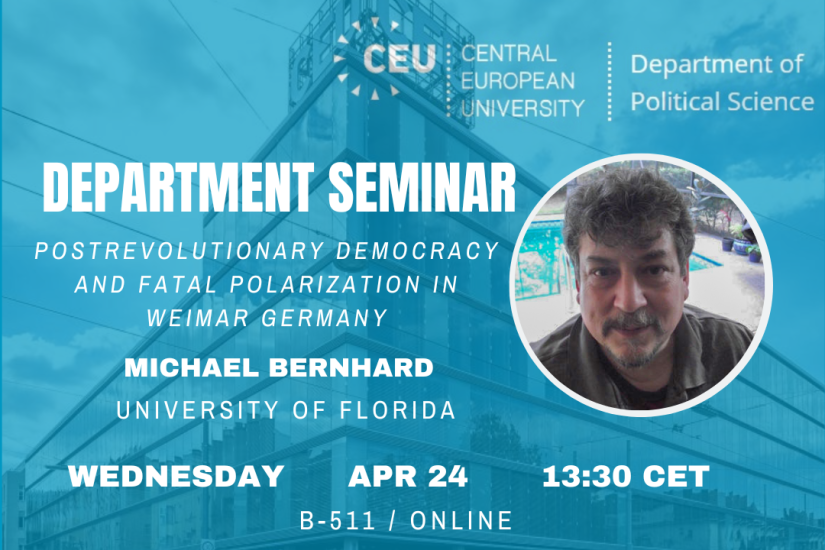
Title: Postrevolutionary Democracy and Fatal Polarization in Weimar Germany
Authors: Michael Bernhard and Michael Webb
Abstract: We look at the impact of revolutionary violence during the collapse of the Kaisserreich and the German Revolution to understand voting for extreme parties in the post-1928 crisis elections in the Weimar Republic. We examine this expectation using strike data at the regional level during the revolution and gauging its impact distally using techniques of ecological inference estimation. Our expectation is that in areas where revolutionary strike activity was high, we will be able to pinpoint the identities more prone to extremist politicization. Further, we expect to see substantially less voting for the ideological extremes in predominantly Catholic regions, due to the cross-class denominational basis of the Center Party. Along the lines suggested by the existing literature we expect Nazi support to be stronger in Protestant areas and that occupational support will vary according to how economic conditions and revolutionary legacies contribute to dissatisfaction with democracy and polarization. We find that the legacy of contentious behavior during the German Revolution had an important impact on voting behavior across occupational groups. On the extreme left, for the KPD, we found that this impact was strongly class-based, inducing similar voting patterns in both Catholic and Protestant spaces. On the extreme right, for the NSDAP, the effect was concentrated in Protestant localities with the legacies of the revolution far more varied, suggesting a more complex interplay between economic conditions and class identity shaping support. This is in line with idea of the NSDAP electorally as a people’s protest party that brought together a coalition of groups with disparate grievances against Weimar democracy.